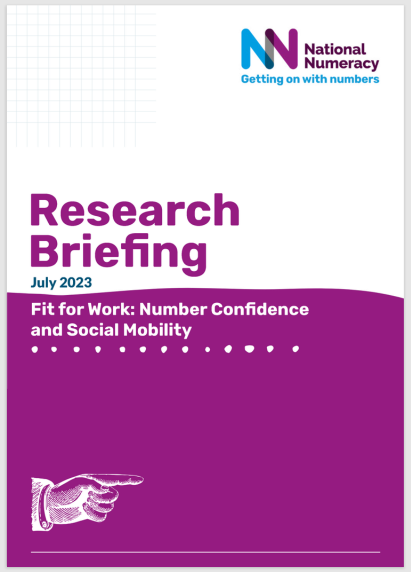Addressing the issue of low numeracy and its effect on the UK’s workforce and economy
Low numeracy affects around half the UK’s working age population, resulting in economic consequences for individuals and the economy.
Our new research briefing shows that individuals with both low, or no, maths qualifications and low maths confidence have observed greater effects from a lack of a Level 2 maths on their earnings, career progression, career choices, job hunting and job performance than their more ‘maths confident’ counterparts.
Number confidence, along with skill, needs to be addressed if we are to improve people’s confidence in applying for jobs and also their progression prospects whilst in those roles.
National Numeracy actively supports people to improve their number confidence and skills, including through the National Numeracy Challenge online tool.
In 2022, over 1,000 users of this tool were surveyed as part of our Number Confidence and Social Mobility research report, which was published in April 2023 and supported by our partner Capital One.
This new briefing paper focuses on insights from the report about the role number confidence plays in getting into work and on at work, and resultant implications for supporting social mobility.







